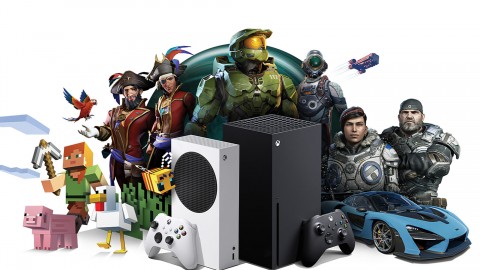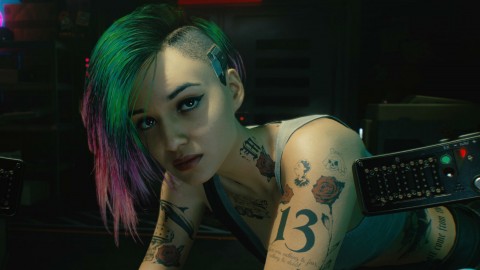
God Of War director Cory Barlog thinks video games should cost more money. “I prefer an initial increase in price to the always-on cash grab microtransaction filled hellscape that some games have become,” Barlog said on Twitter this week, in response to a fan concerned about the inbound next-generation price hike. It’s thought that PlayStation 5 and Xbox Series X games will jump in price from $59.99/£59.99 to $69.99/£64.99, based on the pricing of NBA 2K21, which was revealed last week.
- Read More: The lure of linear, bite-sized gaming
It’s hard not to see where Barlog is coming from here – I’d certainly prefer it if the price hike meant that predatory microtransactions went away forever, but unfortunately, I think that’s quite a naive assumption. Many of this generation’s most popular games have been service cash cows that are pulling in thousands as we speak.
As if we needed any indication that microtransactions are here to stay, Grand Theft Auto Online was the first game Sony showed to the public during its blockbuster PS5 conference. Yet, my concern about the bump in price is being compounded by an even more devilish problem: the death of the pre-owned market.

In the UK, our major video games retail chain, GAME, is mothballing stores left and right, even with all viable competition wiped out in the past decade. Charlie Brooker’s CeX is the only high street alternative for trading-in games, an important, consumer-friendly process which is most of the reason why I’m sitting here writing this article today.
I’m 24 years old now, but when I was in my teens, there was no way I could afford paying £40/50 a pop for a video game every month to keep up with the zeitgeist and eventually have ideas to pitch. So I’d finish them (as quickly as possible to ensure I got the best deal) and trade them in at Grainger Games, GameStation or some other now-defunct retail shop – whoever was prepared to give me the best deal. I’ve never really had a video game collection, the only games left in my house being untradable dust-collectors that lost all of their value and like five or six precious titles that I still hold fondly.
As games shift towards service models and digital downloads, the pre-owned market is starting to disappear. In early July, Nintendo stopped European retailers from re-selling their first-party games. Sony recently announced a digital-only version of the PS5, while Xbox is already way ahead, having cut the disc drive for the Xbox One S All-Digital edition and the continued push for its subscription model, Xbox Games Pass.

This gives players “cheaper” access to first-party titles like Halo Infinite at launch but you never stop paying for the privilege. With efficiency incentives and marketing juggernauts backing a digital future, it looks like we’re going to be saying goodbye to physical games soon.
It won’t be instant, but as channels for consumers to recoup their losses on expensive games dry up, how will those without serious disposable income afford video games in the future? And that’s just talking about the US and the UK – in the international market with import costs and other complications, it will be even more of an accessibility problem.
As a journalist, I’m in a privileged position where I’m sometimes allowed access to games as part of my job, usually to conduct reviews ahead of release. Even with that benefit, I don’t think I’ll be able to afford the games I’m not covering at £65 a pop – especially when I can’t trade them in and retain some of the cash. Sure, a lot of modern games are free-to-play, and there’s always the indie market (which a lot more people could do with digging in to!) but many of the top-flight AAA titles consumers are most interested in will be affected by this hike.

Ex-Sony executive Shawn Layden pointed to the increased cost of making games as a reason for the inevitable price bump, and he’s not wrong about that – but I’d welcome an era of shorter, more refined games that cost less to make so that a more diverse net of consumers can get their hands on them. Given developers and publishers can’t get the “for the players” phrasing out of their mouths, it’s a shame that they won’t be able to get their games into everyone’s hands.
With more and more games being released each year, it’s inevitably going to get increasingly difficult to play and enjoy the video games you’re excited about. Yet as observing is starting to become as popular as engaging, is this the future that the industry desires? The financial effects of this price hike won’t be immediate, but it’ll be interesting to see what happens as we embrace (or shun) the $70/£65 video game.
Given the price of consoles and PC parts, gaming is already an expensive hobby, but without trade-ins or pre-owned products to rely on in the next-generation, video games are about to become even more inaccessible.
The post The next-gen price hike is going to make video games even more inaccessible appeared first on NME Music News, Reviews, Videos, Galleries, Tickets and Blogs | NME.COM.









